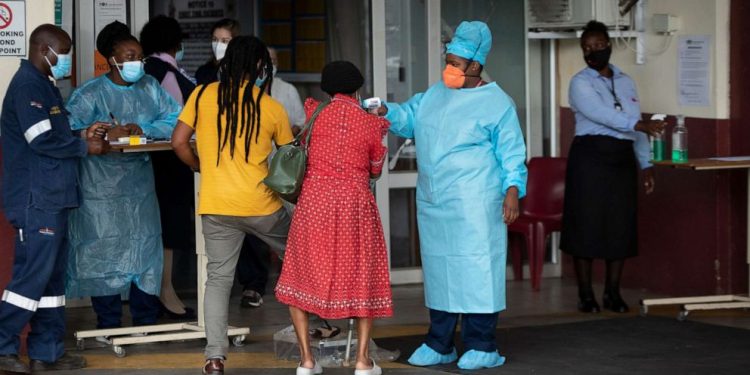The World Health Organization’s emergency committee will meet two weeks early on Thursday to discuss the new coronavirus variants from South Africa and Britain that have rapidly spread to at least 50 countries and sparked widespread alarm.
The newly identified variants, which appear to be significantly more infectious than the strain that emerged in China in 2019, come as spiking virus numbers force many nations to enforce new lockdowns.
The committee normally gathers every three months but the WHO said the director-general pulled the meeting forward “to consider issues that need urgent discussion.”
Mutations to Sars-CoV-2 are raising concerns among scientists who are scrambling to work out if they will respond to vaccines.
In particular, one mutation, detected initially in South Africa and on subsequent variants in Brazil and Japan, has raised alarm among researchers, who are studying the variant, known as 501Y.V2 to determine whether current vaccines will be effective.
Experts say the vaccines will very likely still work against the new variants. Studies to confirm are ongoing, but those experiments take time.
Professor of infectious diseases at the University of Cape Town, Marc Mendelson, told that it remains undetermined whether the South African variant is really more contagious.
Mendelson said a lot of urgent work is underway to study the mutation and he’s hopeful that some answers will be forthcoming within the next few weeks.
A preliminary study found that the Pfizer COVID-19 vaccine appears to work against the mutated virus, but more studies are needed because the South African variant has a number of additional mutations, including changes to some of the virus’s spike protein.
According to Mendelson, the spike protein is not only vital for entry of the virus but is also the site targeted by antibodies humans produce to control the viral infection.
Put simply, these antibodies neutralize the virus by binding to specific sequences of the spike protein, preventing it from binding to a receptor on our cells and therefore preventing entry.
“If you can prevent the entry of the virus into cells, you can prevent it from replicating and inhibit it from causing an infection. The reason for concern is once again, a number of mutations in the genetic code of the virus that the variant has. The resulting changes in the structure of the spike protein, could reduce the binding of antibodies to their recognition sites and therefore reduce the ability of our immune system to prevent the virus from entering cells and taking hold.”
According to the WHO, the South African identified strain has been found in 20 countries, territories, and areas after first being reported to the WHO on Dec. 18.
“From preliminary and ongoing investigations in South Africa, it is possible that the 501Y.V2 variant is more transmissible than variants circulating in South Africa previously,” the agency’s weekly report said.
Moreover, while this new variant does not appear to cause more severe illness, the observed rapid increases in case numbers have placed health systems under pressure. The geographical spread of both variants is likely underestimated, said the WHO.



